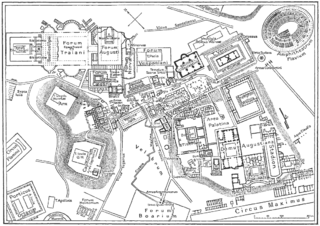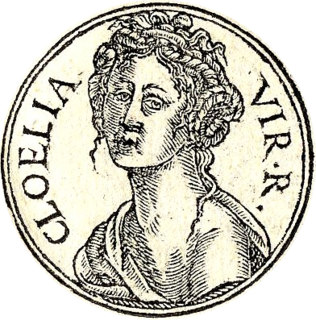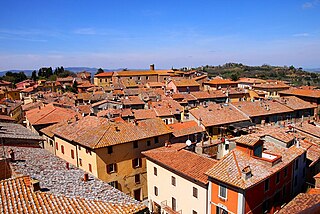Births
| | This section is empty. You can help by adding to it. (May 2013) |
| Millennium: | 1st millennium BC |
|---|---|
| Centuries: | |
| Decades: | |
| Years: |
| 508 BC by topic |
| Politics |
|---|
| Categories |
| Gregorian calendar | 508 BC DVII BC |
| Ab urbe condita | 246 |
| Ancient Egypt era | XXVII dynasty, 18 |
| - Pharaoh | Darius I of Persia, 14 |
| Ancient Greek era | 68th Olympiad (victor )¹ |
| Assyrian calendar | 4243 |
| Balinese saka calendar | N/A |
| Bengali calendar | −1100 |
| Berber calendar | 443 |
| Buddhist calendar | 37 |
| Burmese calendar | −1145 |
| Byzantine calendar | 5001–5002 |
| Chinese calendar | 壬辰年 (Water Dragon) 2189 or 2129 — to — 癸巳年 (Water Snake) 2190 or 2130 |
| Coptic calendar | −791 – −790 |
| Discordian calendar | 659 |
| Ethiopian calendar | −515 – −514 |
| Hebrew calendar | 3253–3254 |
| Hindu calendars | |
| - Vikram Samvat | −451 – −450 |
| - Shaka Samvat | N/A |
| - Kali Yuga | 2593–2594 |
| Holocene calendar | 9493 |
| Iranian calendar | 1129 BP – 1128 BP |
| Islamic calendar | 1164 BH – 1163 BH |
| Javanese calendar | N/A |
| Julian calendar | N/A |
| Korean calendar | 1826 |
| Minguo calendar | 2419 before ROC 民前2419年 |
| Nanakshahi calendar | −1975 |
| Thai solar calendar | 35–36 |
| Tibetan calendar | 阳水龙年 (male Water-Dragon) −381 or −762 or −1534 — to — 阴水蛇年 (female Water-Snake) −380 or −761 or −1533 |
The year 508 BC was a year of the pre-Julian Roman calendar. In the Roman Empire it was known as the Year of the Consulship of Poplicola and Tricipitinus (or, less frequently, year 246 Ab urbe condita ). The denomination 508 BC for this year has been used since the early medieval period, when the Anno Domini calendar era became the prevalent method in Europe for naming years. 508 BC was the year Ancient Athens was founded.
| | This section is empty. You can help by adding to it. (May 2013) |
| | This section is empty. You can help by adding to it. (May 2013) |

The 5th century BC started the first day of 500 BC and ended the last day of 401 BC.
Year 481 BC was a year of the pre-Julian Roman calendar. At the time, it was known as the Year of the Consulship of Vibulanus and Fusus. The denomination 481 BC for this year has been used since the early medieval period, when the Anno Domini calendar era became the prevalent method in Europe for naming years.

Year 479 BC was a year of the pre-Julian Roman calendar. At the time, it was known as the Year of the Consulship of Vibulanus and Rutilus. The denomination 479 BC for this year has been used since the early medieval period, when the Anno Domini calendar era became the prevalent method in Europe for naming years.
Year 341 BC was a year of the pre-Julian Roman calendar. At the time it was known as the Year of the Consulship of Venno and Privernas. The denomination 341 BC for this year has been used since the early medieval period, when the Anno Domini calendar era became the prevalent method in Europe for naming years.
Year 487 BC was a year of the pre-Julian Roman calendar. At the time, it was known as the Year of the Consulship of Sicinius and Aquillius. The denomination 487 BC for this year has been used since the early medieval period, when the Anno Domini calendar era became the prevalent method in Europe for naming years.
Year 391 BC was a year of the pre-Julian Roman calendar. At the time, it was known as the Year of the Tribunate of Flavus, Medullinus, Camerinus, Fusus, Mamercinus and Mamercinus. The denomination 391 BC for this year has been used since the early medieval period, when the Anno Domini calendar era became the prevalent method in Europe for naming years.

Vicus Tuscus was an ancient street in the city of Rome, running southwest out of the Roman Forum between the Basilica Julia and the Temple of Castor and Pollux towards the Forum Boarium and Circus Maximus via the west side of the Palatine Hill and Velabrum.

Cloelia was a legendary woman from the early history of ancient Rome.

Lars Porsena was an Etruscan king known for his war against the city of Rome. He ruled over the city of Clusium. There are no established dates for his rule, but Roman sources often place the war at around 508 BC.

Publius Valerius Poplicola or Publicola was one of four Roman aristocrats who led the overthrow of the monarchy, and became a Roman consul, the colleague of Lucius Junius Brutus in 509 BC, traditionally considered the first year of the Roman Republic.
Clusium was an ancient city in Italy, one of several found at the site. The current municipality of Chiusi (Tuscany) partly overlaps this Roman walled city. The Roman city remodeled an earlier Etruscan city, Clevsin, found in the territory of a prehistoric culture, possibly also Etruscan or proto-Etruscan. The site is located in northern central Italy on the west side of the Apennines.

Chiusi is a town and comune in the province of Siena, Tuscany, Italy.
The Roman–Etruscan Wars were a series of wars fought between ancient Rome and the Etruscans. Information about many of the wars is limited, particularly those in the early parts of Rome's history, and in large part is known from ancient texts alone. The conquest of Etruria was completed in 265–264 BC.
Spurius Larcius was one of the leading men of the early Roman Republic, of which he was twice consul. However, his greatest fame was won as one of the defenders of the Sublician bridge against the army of Lars Porsena, the King of Clusium.

Titus Herminius, surnamed Aquilinus, was one of the heroes of the Roman Republic. He participated in two of the most famous conflicts that attended the birth of the Republic, and was elected consul in 506 BC. However, his greatest fame was won as one of the defenders of the Sublician bridge against the army of Lars Porsena, the King of Clusium.
Titus Lucretius Tricipitinus was a politician and military leader in the early days of the Roman Republic. Twice, in the years 508 and 504 BC, he was elected Roman Consul, alongside Publius Valerius Poplicola. Also a military leader, he was victorious against Lars Porsena during his first consulate. According to Livy, he led the Roman army together with Valerius against the Sabines in 504 BC and both consuls were awarded the honour of a triumph, however the Fasti Triumphales only mention the triumph of Valerius, in May 504 BC.
The war between Clusium and Aricia was a military conflict in central Italy that took place around 508 BC.

Gnaeus Fulvius Maximus Centumalus was a military commander and politician from the middle period of the Roman Republic, who became consul in 298 BC. He fought in the final wars against the Etruscans and later led armies in the Third Samnite War. He was appointed dictator in 263 BC with responsibility for overseeing the start of the Roman ship building effort in the First Punic War.
The First Battle of Clusium was a battle that took place in June of 82 BC during the Roman Republic's Second Civil War. The battle pitted the Optimates under the command of Lucius Cornelius Sulla against the Populares commanded by Gnaeus Papirius Carbo. The battle was indecisive.